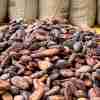
Wonder Drug – A Victim of Identity Theft: Safeguarding the Legacy of WHO-Approved ORS
The Hindu
WHO-approved ORS is essential for treating diarrhoea in children, while non-WHO ORS products pose serious health risks.
The WHO-approved ORS formulation comprises a precise balance of glucose and electrolytes, facilitating optimal absorption and rapid restoration of fluid and electrolyte balance in children suffering from diarrhoea. Its efficacy in preventing dehydration-related complications, such as renal failure and shock, has been well-documented, making it a cornerstone of diarrhoeal disease management globally.
However, the laudable strides made by WHO-approved ORS are under siege by the proliferation of so called “energy drinks” masquerading as genuine ORS products. These alternatives, devoid of WHO endorsement, often contain excessive sugar concentrations, which not only fail to alleviate diarrhoea but exacerbate symptoms and prolong illness duration. Children who consume these “non-WHO ORS” products are at heightened risk of dehydration, electrolyte imbalances, and metabolic disturbances, necessitating urgent medical intervention.
Despite regulatory directives mandating adherence to stringent quality standards, unscrupulous manufacturers persist in flouting regulations, flooding the market with “non-WHO ORS” products under misleading brand names. Brands such as ORS L, Rebalanz Vit ORS, Fruitnik Electro+ ORS, and ORS Fit saturate pharmacy shelves, preying on consumers’ trust and perpetuating misinformation.
The packaging of “non-WHO ORS” products often features prominent “ORS” branding, strategically obscuring disclaimers such as “not an ORS” or “not recommended for diarrhoea” in fine print. This deliberate deception not only undermines parental vigilance but also exacerbates health risks for children, who are unwittingly exposed to substandard and potentially harmful products.
Moreover, the consequences of consuming “non-WHO ORS” extend beyond paediatric care, with adults, particularly those with pre-existing health conditions such as diabetes, facing heightened risks of complications. Elevated sugar levels in “non-WHO ORS” products can precipitate hyperglycaemia, exacerbating diabetic complications and increasing the likelihood of adverse cardiovascular events, renal impairment, and metabolic derangements.
In response to the escalating threat posed by “non-WHO ORS” products, concerted action is imperative to safeguard public health and restore consumer confidence. Regulatory agencies must intensify efforts to enforce compliance with WHO standards, imposing stringent penalties on violators and enhancing surveillance mechanisms to detect illicit activities.
Furthermore, healthcare providers play a pivotal role in educating patients and caregivers about the importance of discerning genuine ORS products from “non-WHO ORS” alternatives. By empowering consumers with knowledge and equipping them with tools to identify authentic ORS formulations, healthcare professionals can mitigate the risks posed by “non-WHO ORS” products and promote safer healthcare practices within communities.













